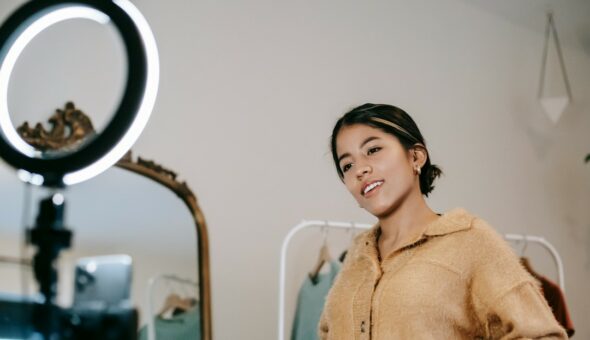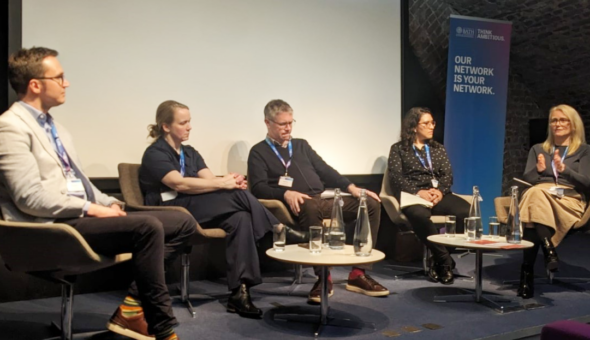November is PhD month on the Business and Society blog. We'll be featuring profiles of PhD student, as well taking as a closer look at some of their research work. Here, PhD student Amira Mukendi profiles Sophia Ndibalema. They discuss Sophia's research on CSR, her background and motivations, as well as her ambitions for the future.
Can you tell us a bit about your research?
My research area is in CSR and I’m looking at local communities and multinational corporations in the extractive industries, specifically the mining industry. At the moment, I’m looking at CSR through the lens of the local community, how they understand CSR, what their expectations are, and why they have those expectations for CSR. I’m also looking at the corporations and how they practice the procedures for CSR and how they are able to link it, or not link it, with community expectations. Furthermore, I want to see whether local communities can influence the success or failure of CSR initiatives.
Can you tell us more about the relationship between local communities and multinational corporations?
There have been a lot of conflicts, especially in developing countries where CSR is there but not well regulated - there are no proper systems, we talk of institutional void. As it’s not fully institutionalised there is a lot of tension between local communities and multinational corporations. Corporations say they are doing a lot – generally they’ve probably built a school, or contributed in some way to the health sector - but still there is a lot of dissatisfaction among the local communities. You would think the local communities would be happy with some of the things that are happening, but that’s not the case. So, either there’s a mismatch in expectations or in how they view the responsibility of that corporation
What motivated you to research communities and CSR?
I’ve been working with the University of Dar es Salaam for 10 years and we’ve been doing some consulting work with NGOs. I've had the opportunity to work with organisations that deal with local communities in either developing their communication strategies or training women, specifically those with disabilities, in how they can participate in politics. In doing all those different projects which engages communities, I’ve been able to move in different circles, visiting villages in different parts of Tanzania and I've seen “the poverty side”. You have people living literally on top of goldmines but they are really poor, and you have companies coming from around the world and investing and they are really rich.
In terms of CSR, I got interested when I was studying public relations. I did my undergraduate degree in Public Relations and Advertising and there was a course in business ethics where I learned about CSR and really enjoyed it. I think it was the only course I got an A in everything! I think I’ve always strongly felt we are responsible to others. So, when I was looking at Tanzania and the poverty, and seeing how these organisations interact with the local communities – well, I wanted to try and find out their motives! Because I can tell that they try to engage with communities but still I don’t see the impact. The biggest problem in my experience is that companies set up projects that are unsustainable – you’ll have companies building water/taps or wells but don’t maintain them, so after a few months they’re broken and don’t get used anymore. And if you ask the local community their perspective will be, “it’s their project, they set it up, they should maintain it”. So, it’s a very complex issue, but one I’d like to understand better and figure out how companies can do better!
What methods are you planning to use?
I can only speak in broad terms at the moment as I’m current in the literature review stage. I will be using qualitative methods. I plan to interview people in these mining communities in Tanzania, engaging in focus group discussions, and observing. I will also interview corporations and management. I will also use a lot of secondary data to get my question answered.
What do you hope to achieve from your research?
It might be a bit early to say, but I can dream about it. I want to contribute to the debate of what CSR is. I feel that the beneficiaries have a role to play and that they should be allowed more input than they are getting right now. I think they have a lot of influence on the success of CSR projects, especially in development. Engagement should not happen in the end phase but from the start; understanding the beneficiary’s perspective and what they really need should be the foundation of the project. So I hope by the end of this research project, I will be able to come up with a framework for the multinational companies. African countries and other developing countries do need investors but importantly, we want people to invest in a way that affect real change – developing the people and having a tangible long-term impact. Development doesn’t necessarily mean that Africa has to become Europe. So I’d like maybe to have a framework to help corporations better strategize their CSR initiatives in developing countries and to really contribute to sustainable development. That’s what I’m dreaming of so far.
I also want to contribute to academia. CSR is taught in Tanzania but not widely - it’s a small topic in business ethics which is also not afforded much attention. I think more needs to be done in this area. I think that if I do research in the area and am able to write about things that are relevant to the people there, then that will contribute to the learning and teaching of business ethics.
You're a member of CBOS. What’s your favourite thing about being a part of a research centre?
I think the people and the community. You can ask anyone any questions - everyone is friendly. The reading programme is good because it helps to challenge me - sometimes when you read alone, you’re closed off but when you read in a group everyone’s different views help you see things in a different way. Also, in coming from another country there's a lot of different things to learn, so it’s been really important having a group to support me through the challenges, by listening and making me feel like my questions are valid. Also, my supervisors are awesome!
Thanks so much Sophia, it was great to learn more about your research!
Responses




Asante sana Sophia! I look forward to reading more your research results from Tanzania!
Can't wait for the final output. Sophia's research is an inspiration